Essential Tips For Beginner Gardeners To Thrive In Their Garden Starting A Garden Can Be An Exciting And Fulfilling Endeavor For Anyone, Especially Beginners Eager To Connect With Nature Or Grow Their Own Food. However, The Journey To Successful Gardening Can Be A Bit Overwhelming. Here Are Some Essential Tips That Can Help Beginner Gardeners Cultivate Their Green Thumbs And Nurture Their Plants Effectively. 1. Start Small As A Beginner Gardener, It’S Important To Avoid Taking On Too Much At Once. Start With A Small Plot Or A Few Pots To Make The Process Manageable. This Allows You To Focus On Learning The Basics Without Becoming Overwhelmed. 2. Know Your Growing Zone Understanding Your Local Climate Is Crucial For Selecting The Right Plants. Be Sure To Research Your Usda Hardiness Zone To Determine Which Plants Will Thrive In Your Area Based On Temperature, Rainfall, And Seasonal Changes. 3. Choose The Right Plants Opt For Beginner-Friendly Plants That Are Resilient And Easy To Grow. Vegetables Like Radishes, Lettuce, And Tomatoes Are Great Choices, As Are Herbs Like Basil And Parsley. They Provide Quick Rewards And Help Build Your Confidence As You Learn. 4. Invest In Quality Soil The Foundation Of A Successful Garden Starts With Good Soil. Invest In Quality Topsoil And Amend It With Compost To Improve Drainage And Provide Essential Nutrients. Healthy Soil Leads To Healthy Plants. 5. Water Wisely Watering Is A Critical Aspect Of Gardening. It’S Better To Water Deeply And Less Frequently, Encouraging Roots To Grow Deeper. Pay Attention To The Specific Needs Of Your Plants, As Some May Prefer More Moisture Than Others. 6. Utilize Mulch Mulch Is Your Best Friend In The Garden. It Helps Retain Soil Moisture, Suppresses Weeds, And Improves Soil Quality Over Time. Organic Mulches Like Straw Or Wood Chips Can Gradually Decompose And Enrich The Soil. 7. Learn About Pest Control As You Garden, You’Ll Encounter Pests. Familiarize Yourself With Common Garden Pests And Consider Organic Methods For Pest Control, Such As Introducing Beneficial Insects Or Using Natural Repellents. 8. Be Patient And Observant Gardening Is A Learning Process That Requires Patience. Observe Your Plants Regularly, Noting Any Changes In Growth Or Signs Of Distress. This Will Help You Develop A Better Understanding Of Your Garden’S Needs. 9. Join A Gardening Community Engaging With Other Gardeners Can Provide Invaluable Support And Insight. Join Local Gardening Clubs Or Online Communities To Share Experiences, Seek Advice, And Gain Inspiration From Others. 10. Keep A Gardening Journal Documenting Your Gardening Journey Can Help You Track Progress And Learn From Your Successes And Failures. Note What You Plant, When You Plant It, And Any Observations About Growth Patterns Or Pest Issues. By Following These Essential Tips For Beginner Gardeners, You’Ll Be Well On Your Way To Embarking On A Successful And Enjoyable Gardening Adventure. Remember, Every Gardener Started As A Beginner, So Embrace The Journey And Celebrate Each New Sprout!

Tips for Beginner Gardeners
Want to grow your own garden but don’t know where to start? Begin with easy plants like tomatoes and herbs. Watering is key; do it early in the morning or late in the evening. Make sure your soil is rich and full of nutrients. Did you know that talking to your plants can help them grow? Regular care and observation are crucial. Making mistakes is part of learning, so enjoy the journey!Understanding Your Gardening Space
Evaluating sunlight exposure and soil quality. Choosing the right location for different types of plants.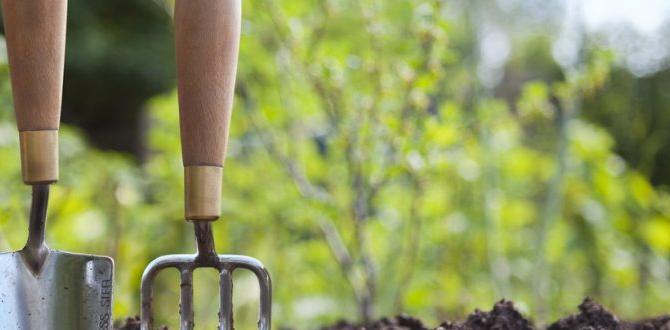
Finding the right space to garden is key for success. Start by checking how much sunlight your area gets each day. Most vegetables need at least 6 hours of direct sun. Next, look at your soil quality. Is it sandy, clayey, or loamy? Each type affects plant growth.
- Sunlight: Observe shadows from trees or buildings.
- Soil: Try a simple soil test with water and your fingers.
- Location: Choose sunny spots for flowers; shaded areas work for ferns.
Remember, healthy plants need the right mix of sun and soil!
What is the best sunlight condition for plants?
Most plants thrive in 6 to 8 hours of sunlight each day. However, some prefer shade or partial sun.
Tips for Choosing Plant Locations:
- Vegetables love sunny spots.
- Flowers bloom well in various light.
- Herbs often like a balance of sun and shade.
Choosing the Right Plants
Selecting easytogrow plants for beginners. Considering climate and seasonal factors in plant selection.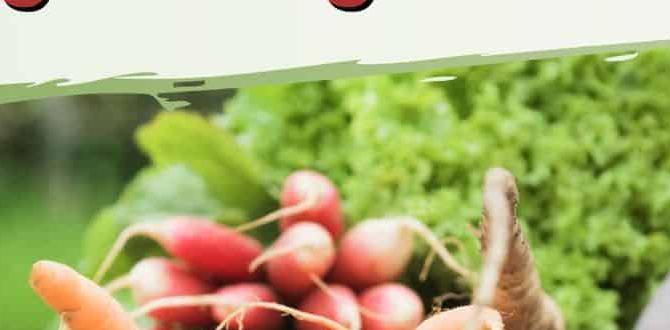
Starting your garden is exciting! Selecting the right plants can make it even easier. Choose easy-to-grow plants like tomatoes and sunflowers. They are simple and give you a boost as you learn. Think about your weather too! Different plants thrive in different climates. Check your local season and temperature. A good rule of thumb: if you can’t stand the heat, maybe don’t try growing peppers right away! Here’s a handy table to help you get started:
| Plant Type | Best Climate | Season |
|---|---|---|
| Tomatoes | Warm | Summer |
| Radishes | Cool | Spring/Fall |
| Sunflowers | Warm | Summer |
Basic Gardening Tools Every Beginner Needs
Essential tools for planting, weeding, and maintenance. Tips for tool care and storage.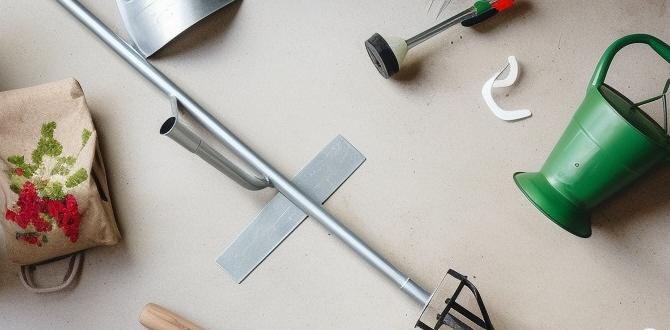
Every budding gardener needs the right tools. Essential items include a trowel for digging, a weeder to tackle pesky plants, and a watering can to keep plants happy. Don’t forget gloves to protect your hands—they may not make you a superhero, but they help! Store tools in a tidy box to keep them from playing hide and seek. A little care goes a long way; wipe them clean and keep them dry. Happy gardening!
| Tool | Use | Care Tip |
|---|---|---|
| Trowel | Digging holes | Clean after use |
| Weeder | Removing weeds | Store in a dry place |
| Watering Can | Watering plants | Check for leaks |
| Gloves | Hand protection | Wash as needed |
Soil Preparation and Enrichment
Importance of good soil and how to test it. Techniques for enriching soil with organic matter.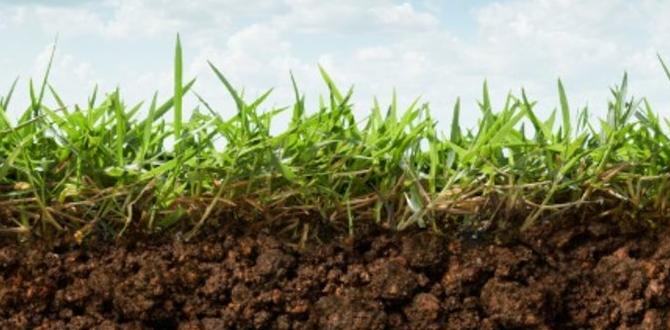
Good soil is like a comfy bed for plants. It helps them grow big and strong. Testing your soil is easy! You can use a simple kit from a garden center to check if it’s too acidic or too sandy. If your soil needs some love, mix in organic matter like compost or aged manure. This adds nutrients and helps the soil stay moist. Remember, happy soil means happy plants!
| Soil Testing Kit | What to Check |
|---|---|
| pH level | Is it too sour or sweet? |
| Nutrient content | What do your plants need? |
| Texture | Does it hold water well? |
Watering Techniques for Optimal Growth
Best practices for watering frequency and methods. Signs of overwatering and underwatering.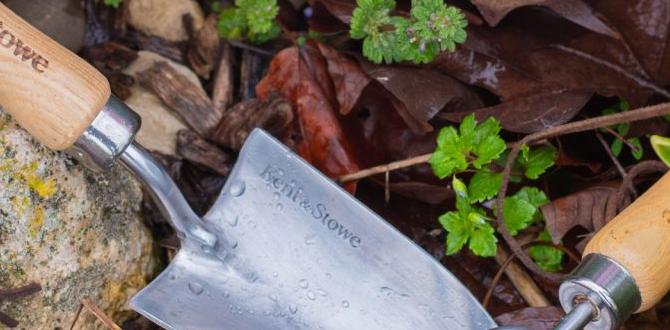
Proper watering helps plants thrive. Water your garden in the early morning or late afternoon. This prevents evaporation and allows the soil to absorb moisture. Check the soil with your finger. If it feels dry, it’s time to water. Overwatering can drown plants, while underwatering can lead to wilting. Watch for signs like yellow leaves or drooping stems. These indicate watering problems. Follow these tips for better plant growth:
- Water deeply, but less often.
- Use a soaker hose or watering can.
- Keep an eye on the weather; adjust watering on rainy days.
Healthy plants need just the right amount of water!
How often should I water my garden?
Water your garden once a week during dry spells. Adjust based on weather and plant needs.
Signs of Overwatering and Underwatering:
- Overwatering: Yellow leaves, soggy soil.
- Underwatering: Wilting, brown leaf tips.
Pest Management for Healthy Plants
Common pests in beginner gardens and how to identify them. Natural and ecofriendly pest control methods.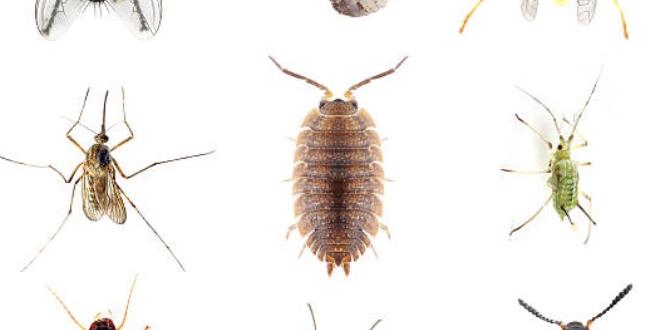
Pests can harm your garden plants. Some common pests include:
- Aphids: Small green bugs that suck plant sap.
- Spider mites: Tiny red or brown dots that web plants.
- Whiteflies: Small white flying insects that gather under leaves.
To manage these pests naturally, you can try:
- Spraying water to wash them off.
- Using neem oil, a natural bug repellent.
- Planting marigolds near your veggies to keep them away.
Keeping an eye on your plants helps catch pests early. Healthy plants are easier to manage!
How can I identify common garden pests?
Look for holes in leaves, sticky residue, or webs. Check the underside of leaves for eggs or bugs.Understanding Plant Growth Cycles
The life cycle of common garden plants. Recognizing when to plant, prune, and harvest.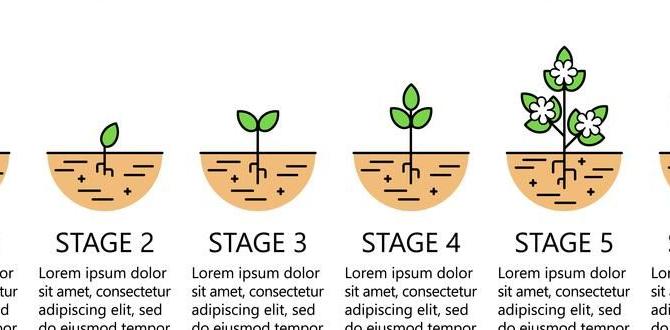
Plants have life cycles just like animals. They start as seeds, grow into sprouts, and then become full plants. These stages help gardeners know what to do. For example, early spring is great for planting seeds. As plants grow, you should prune them to keep them healthy. Finally, when the fruits or vegetables are ripe, it’s time to harvest. Keeping track of these cycles helps you garden better.
When should I plant, prune, and harvest my garden?
You should plant in spring, prune in summer, and harvest in late summer or fall. Knowing these times helps your garden thrive.
- Plant: Early spring for most crops.
- Prune: After the first bloom in summer.
- Harvest: When colors change or fruits feel firm.
Creating a Garden Care Schedule
How to organize tasks for optimal garden maintenance. Seasonal considerations for gardening activities.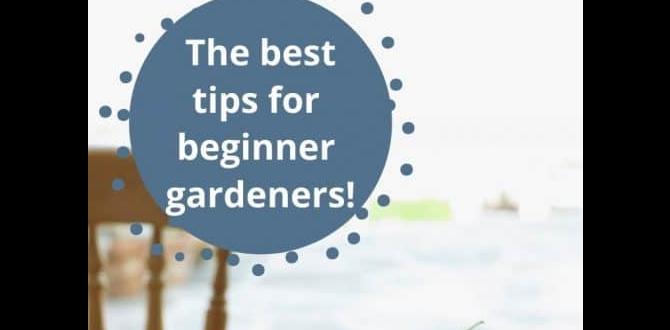
To keep a garden thriving, a care schedule is essential. Start by planning daily, weekly, and monthly tasks. Seasonal changes affect what you need to do. Make a list to help you remember:
- Spring: Plant seeds and prepare soil.
- Summer: Water plants regularly and watch for pests.
- Fall: Harvest crops and clean up the garden.
- Winter: Plan for next year and take care of tools.
By staying organized, you can enjoy a beautiful garden all year long!
What should a garden care schedule include?
A garden care schedule should include daily watering, weekly weeding, and seasonal planting. This helps keep plants healthy and strong.
Learning from Mistakes: Common Gardening Pitfalls
Identifying frequent beginner errors and how to avoid them. Case studies of beginner gardening failures and successes.
Starting a garden is exciting, but it can come with mistakes. Many beginners plant too closely, not giving plants room to grow. Others overwater or underwater. These errors can lead to weak plants or even failures.
Learning from others’ experiences is helpful. Some beginners lost their crops due to pests. Others didn’t check soil quality, which caused plant problems. Understanding these mistakes can help improve your gardening success.
- Space plants wisely.
- Water according to needs.
- Test your soil health.
- Watch for pests early.
Remember, each mistake teaches a lesson. Gardening is about patience and practice.
What are common gardening mistakes beginners make?
Common mistakes include overwatering, poor soil choice, and planting too closely. Learning about these errors can help you create a successful garden.
Conclusion
In conclusion, beginner gardeners should start small, choose easy plants, and learn about soil and watering needs. You can grow a beautiful garden by being patient and experimenting. Remember to observe your plants and adjust your care. For more tips, check out gardening books or local workshops. Let’s dig in and enjoy the journey of gardening together!FAQs
What Are The Essential Tools And Materials A Beginner Gardener Needs To Get Started?To start gardening, you need a few essential tools and materials. First, get a small shovel or trowel to dig in the soil. You’ll also need a watering can or hose to give your plants water. Don’t forget gloves to keep your hands clean. Finally, choose some seeds or young plants to grow in your garden!
How Do I Choose The Right Plants For My Gardening Zone And Climate?To choose the right plants, start by checking your gardening zone. A gardening zone tells you what plants can grow in your area. Look at your climate, like how hot or cold it gets. You can also see how much sun or shade your garden gets. Finally, pick plants that match your zone and climate for the best growth!
What Basic Gardening Techniques Should Beginners Learn For Successful Plant Growth?To grow plants successfully, start by learning how to water them properly. You should check the soil to see if it’s dry. Next, learn about sunlight; most plants need a lot of it. Remember to pull out weeds because they take food from your plants. Finally, use compost to help your plants get the nutrients they need to grow strong!
How Often Should I Water My Garden, And What Are Some Signs Of Overwatering Or Underwatering?You should water your garden about once a week. However, if it’s very hot or dry, you might need to water more often. Signs of overwatering are yellow leaves and mushy soil. If plants droop and leaves become brown, they might need more water. Always check the soil first!
What Are Some Common Mistakes That Beginner Gardeners Make, And How Can I Avoid Them?Beginner gardeners often water too much or not enough. To avoid this, check the soil with your finger. If it feels dry, water it. Another mistake is picking the wrong plants. Choose plants that grow well in your area. Finally, beginners forget to pull weeds. Weeds can harm your plants, so remove them regularly.
{“@context”:”https://schema.org”,”@type”: “FAQPage”,”mainEntity”:[{“@type”: “Question”,”name”: “What Are The Essential Tools And Materials A Beginner Gardener Needs To Get Started? “,”acceptedAnswer”: {“@type”: “Answer”,”text”: “To start gardening, you need a few essential tools and materials. First, get a small shovel or trowel to dig in the soil. You’ll also need a watering can or hose to give your plants water. Don’t forget gloves to keep your hands clean. Finally, choose some seeds or young plants to grow in your garden!”}},{“@type”: “Question”,”name”: “How Do I Choose The Right Plants For My Gardening Zone And Climate? “,”acceptedAnswer”: {“@type”: “Answer”,”text”: “To choose the right plants, start by checking your gardening zone. A gardening zone tells you what plants can grow in your area. Look at your climate, like how hot or cold it gets. You can also see how much sun or shade your garden gets. Finally, pick plants that match your zone and climate for the best growth!”}},{“@type”: “Question”,”name”: “What Basic Gardening Techniques Should Beginners Learn For Successful Plant Growth? “,”acceptedAnswer”: {“@type”: “Answer”,”text”: “To grow plants successfully, start by learning how to water them properly. You should check the soil to see if it’s dry. Next, learn about sunlight; most plants need a lot of it. Remember to pull out weeds because they take food from your plants. Finally, use compost to help your plants get the nutrients they need to grow strong!”}},{“@type”: “Question”,”name”: “How Often Should I Water My Garden, And What Are Some Signs Of Overwatering Or Underwatering? “,”acceptedAnswer”: {“@type”: “Answer”,”text”: “You should water your garden about once a week. However, if it’s very hot or dry, you might need to water more often. Signs of overwatering are yellow leaves and mushy soil. If plants droop and leaves become brown, they might need more water. Always check the soil first!”}},{“@type”: “Question”,”name”: “What Are Some Common Mistakes That Beginner Gardeners Make, And How Can I Avoid Them? “,”acceptedAnswer”: {“@type”: “Answer”,”text”: “Beginner gardeners often water too much or not enough. To avoid this, check the soil with your finger. If it feels dry, water it. Another mistake is picking the wrong plants. Choose plants that grow well in your area. Finally, beginners forget to pull weeds. Weeds can harm your plants, so remove them regularly.”}}]}





